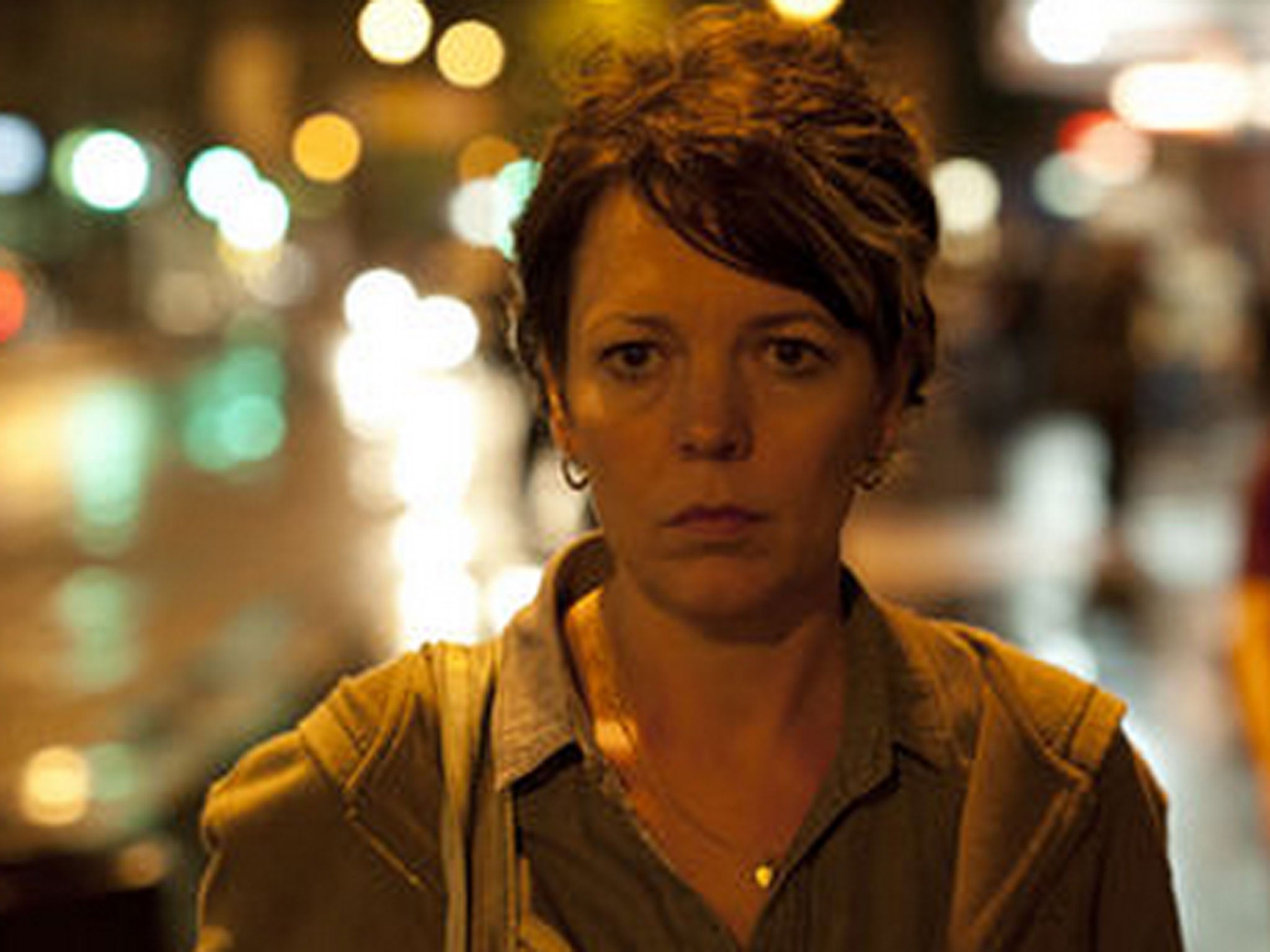TV review: Olivia Colman's performance is reason enough to watch Run
Also: Broken by Battle, BBC1

Your support helps us to tell the story
From reproductive rights to climate change to Big Tech, The Independent is on the ground when the story is developing. Whether it's investigating the financials of Elon Musk's pro-Trump PAC or producing our latest documentary, 'The A Word', which shines a light on the American women fighting for reproductive rights, we know how important it is to parse out the facts from the messaging.
At such a critical moment in US history, we need reporters on the ground. Your donation allows us to keep sending journalists to speak to both sides of the story.
The Independent is trusted by Americans across the entire political spectrum. And unlike many other quality news outlets, we choose not to lock Americans out of our reporting and analysis with paywalls. We believe quality journalism should be available to everyone, paid for by those who can afford it.
Your support makes all the difference.Channel 4 seems to have acquired a taste for tangled one-offs, that is self-contained dramas that are connected by loose threads to others in the same series. It isn't a new idea exactly. Paul Abbott did it in the excellent Clocking Off and Jimmy McGovern explored its possibilities in The Street. More recently, Channel 4's Dates drew on the combination of freshness and familiarity it can offer, the odd sense that you know more than a particular episode is telling you, because you've encountered the characters in other circumstances. Run, an account of south London underbelly life, is clearly going to do something similar, with an incidental character in this first episode providing the central figure for the next.
Last night, though, the focus was entirely on Carol, a fretted, put-upon mother of two semi-feral teenagers. "They're still boys to me," she tells a work colleague, but they're pretty horrible boys, making their first impression on us with the off-screen slap we hear one of them giving his girlfriend. Carol, played by Olivia Colman as a woman scuffed into roughness by the injuries of her life, is trying to maintain the semblance of a domestic life. But her sons won't compromise any of their own whims to make it happen. "Ain't eating in there... TV isn't even working properly," one of them whines after she's cooked supper for them.
Carol's life is about to get worse – her boys kill a passer-by for no reason but pathologically inflated pride and Carol is driven to conceal the evidence by maternal dread. She is, it becomes clear, half-embedded in the criminality that is routine for her estranged husband and sons, nicking iPhones from the distribution centre where she works and fencing them to a Chinese contact in the local launderette. She is also locked into it by her husband's reputation. When she goes with a friend for a night out, a man she starts to talk to tells her she's "off limits". Her ex doesn't want her but no one else is getting her either. In an oddly convincing touch (could it happen so neatly?), the sight of one of her sons biting into an apple, just as her vicious husband did a few hours earlier, shows Carol what's coming and persuades her to turn them in.
Whether there's much to be done with Run but endure it, I'm not sure. It belongs to a particular branch of British miserablism that seems to hold that the light just won't penetrate below a certain level of society. But if you value that kind of thing, and buy into its implicit link between grimness and artistic seriousness, it is very well done indeed, and Colman's performance justifies a viewing in itself, rasping the sweetness off any preconceptions about the kind of role she can play.
The grimness of Broken by Battle, a Panorama special about the rising rates of PTSD among veterans of the Iraq and Afghan wars, had a purposeful design to it. It was intended to arouse our indignation at the Ministry of Defence's current treatment of psychologically wounded soldiers and it did it very effectively, with heartbreaking stories of those who had killed themselves long after coming back from the war zone. In one painful sequence, a young soldier videoed a last message to his mother on his mobile phone, a keffiyeh scarf wrapped around his head. He was literally, on a suicide mission, like the young men he'd once helped fight. But he was weeping, not exultant, and the only target he had in mind was himself.
Toby Harnden's report convincingly offered a picture of scrappy provision, bureaucratic carelessness and cruel illogic in the MoD's current arrangement. A senior officer said they needed more research. "Once we've got some statistics, we can start to do something about it," he said. Why not start now and try to make the statistic smaller?
Join our commenting forum
Join thought-provoking conversations, follow other Independent readers and see their replies
Comments